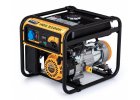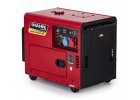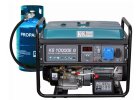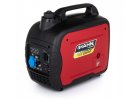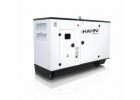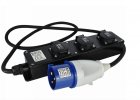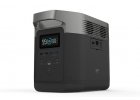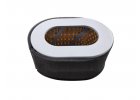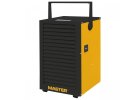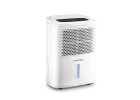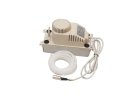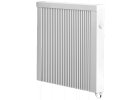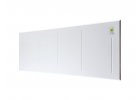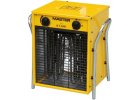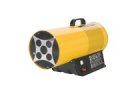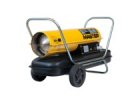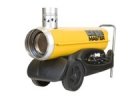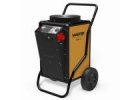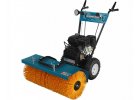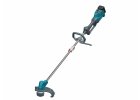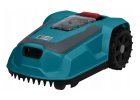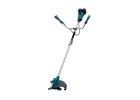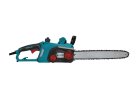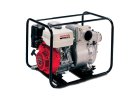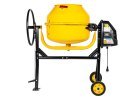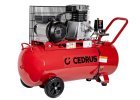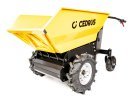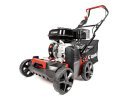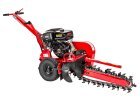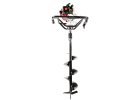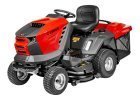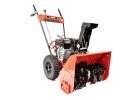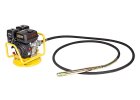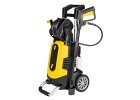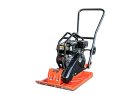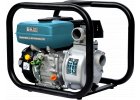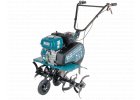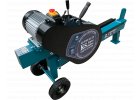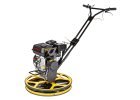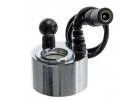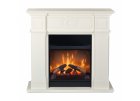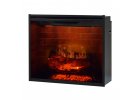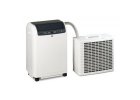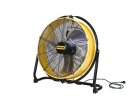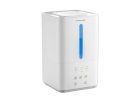Portable Power Generators keep your back free
Energy, and electrical energy in particular, is the be-all and end-all of our society. Without electricity, we are often unable to perform even the most basic activities, and so it is not surprising that we almost always want to have a source of electricity at hand, even if we are far from the socket we usually rely on. But fortunately, there are alternative power sources that can help us solve the problem in such cases. In many cases, this is a portable power generator.
Power generator - a reliable aid in an emergency
Generators are devices that are capable of producing electricity to power electrical appliances where the mains power supply is not available or where there is no other source of electricity.
Generators work according to the dynamo principle. They are usually powered by a petrol combustion engine, although other types of propulsion, such as gas or solar energy, are also available. Generating sets can be divided into types and groups according to various parameters. One of the most common subdivisions is between frame and portable generators.
Portable power generators are - as the name suggests - small power generators whose interior is hidden under the outer shell and which are easy to transport. Very often they are also called digital or inverter units. In this case, it is not a synonym, but the fact that „suitcase” power generators are mostly the type mentioned above.
Switchboard for power and inverter technology
The inverter technology is based on a double conversion process of the generated current: from AC to DC and in the next step back to AC. This allows the generator to deliver a very high quality output current waveform. As a result, such a centre can also be used to supply sensitive electronics.
We should also mention that these power generators are quiet and have a relatively small size. So we are slowly getting to the most important thing: where these power generators can be used.
Portable power generators and their use
A mobile power generator like this has countless uses. Thanks to its small size, you can easily pack it into your car and take it to a picnic, festival, campsite or even sailing. You can also use it for work in the garden and around the house. For many caravan owners, it is an indispensable addition to their rolling home, as it ensures that they do not have to rely on campsites with available outlets when they are on the road.
A portable generator is usually designed to run common household appliances, standard power tools and, as mentioned earlier, electronic devices such as computers or televisions. Since there are a number of generators on the market that vary in power, you should be clear about what kind of generator you want to buy when you know what kind of appliance you want to be powered.
Which power generator should I choose?
The power of the generator must match the requirements and the design of the device it is to supply. Of course, it is not surprising that even the smallest power generator is sufficient to supply a computer or similar small consumer electronics, but again, attention must be paid to the quality of the generator purchased. It is certainly convenient to opt for a cheap generator, but it is also important to pay attention to the quality of workmanship, components, durability, etc. Reviews, experience or the advice of a professional tradesperson can help.
Another general rule is that for appliances of the so-called resistive type (from light bulbs to hair dryers to kettles), you can take the stated power consumption at face value and determine the required power of the generator accordingly.
The situation is different, however, for appliances with an electric motor. For these, a central unit must be selected whose power is many times higher than the power consumption of the appliance stated on the label. In fact, they often require a much higher power input than indicated on the unit's label.
A similar situation arises with appliances with so-called commutator motors, such as various grinding machines, drilling machines, etc. In this case, it is necessary to choose a central unit that ideally has twice the power as that which would result from the label on the appliance.
Even more overlap is required for freezers, compressors and similar appliances. In such cases, the power required is often up to ten times the power indicated on the unit.
Power generator in a small suitcase
From this it is clear that the portable or “suitcase” generator is versatile and can be a useful helper on holiday, at work and for everyday activities around the house and garden.
At first glance, it may look like a mini central, but that doesn't mean it doesn't take a lot of work to fix. Generators of this type are quiet, lightweight, easy to transport and versatile. Choose the unit that best suits your needs and desires and get started!



